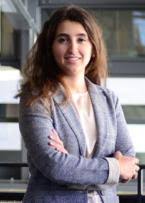
- This event has passed.
MEAM Seminar: “Scalable Algorithms for the Computational Modeling of Complex Multi-Physics Systems”
March 10, 2020 at 10:30 AM - 12:00 PM
The computational modeling of complex multi-physics problems often requires specialized approaches in the formulation, implementation, and deployment of algorithms that lie outside the scope of conventional practice in physics-based modeling and simulation. In this talk I will present three examples of problems in which the synergistic combination of advanced algorithms, and state-of-the-art software implementations on hybrid hardware platforms can furnish computational frameworks with the ability to describe the complex physics involved. In each case, the resulting simulations provide unique physical insights that would be otherwise unattainable, thus enabling analyses of engineering significance.
The first example is concerned with the computational modeling of fluid-driven fracture propagation, which is mired with major difficulties stemming from the strong nonlinearities in the fluid-solid coupling, in addition to those associated with crack propagation, and from the a priori unknown and potentially intricate 3D crack paths that may arise. I will show that the adoption of a discontinuous Galerkin finite element formulation for the solid, combined with a sound cohesive zone model for crack propagation and a continuous formulation for the lubrication flow inside the propagating cracks, results in a robust and scalable solution scheme, which properly exposes the nonlinearities in the coupling, thus preserving the parabolic nature of the coupled system. The proposed framework matches well-established analytical solutions of pressurized cracks in simple configurations both in the toughness and viscosity-dominated regimes, and enables simulations of general crack configurations in 3D with unprecedented resolution for problem of this type.
The second example involves the modeling of elastic instabilities emerging in the large-deformation response of nearly incompressible soft materials, where the non-convexity of the strain energy density leads to the coexistence of multiple equilibrium paths with vastly different, sinuous deformation patterns. I will show that the numerical challenges involved can be overcome by an enhanced finite element solution space with higher order polynomials, an arc-length-based nonlinear solution procedure which gives access to the entire equilibrium path, and an implementation enabling parallel, large-scale simulations. I will show that the robustness of the path-following solution procedure enables complete access to the multiplicity of solutions emerging after bifurcation, to the complex non-monotonic evolution of the deformation patterns and of the stress-strain response, as well as to the settled post-bifurcation states.
Time permitting, I will discuss the dynamics of multiple flexible fibers immersed in viscous flows. The very large deformations that the fibers experience, especially in case of extreme aspect ratios, make the fiber-fiber and fiber-flow interactions extraordinarily complex. Moreover, the nonlocal character of these interactions results in dense linear systems and, in turn, in severe constraints to the problem size. I will present a computational model based on a general 3D beam formulation coupled with a boundary element Stokeslet discretization of the flow. The proposed computational framework takes advantage of the massive parallelization offered by GPU clusters, and enables simulations of hundreds and, possibly, thousands of filaments.

Bianca Giovanardi
Postdoctoral Associate, Department of Aeronautics and Astronautics, Massachusetts Institute of Technology
Bianca Giovanardi is a Postdoctoral Associate in computational mechanics in the group of Prof. Raul Radovitzky at the Department of Aeronautics and Astronautics at the Massachusetts Institute of Technology.
She earned her PhD in computational mathematics in 2017 from the Politecnico di Milano with a thesis proposing a novel method to simulate fracture propagation in brittle materials. During her PhD, she was awarded a Roberto Rocca Doctoral Fellowship to spend six months at MIT developing advanced algorithms for large-scale simulation of fluid-driven fracture. Her current research interests encompass next-generation computational models of multi-physics coupled problems in a variety of fields, including geophysics, aerospace, and defense.
